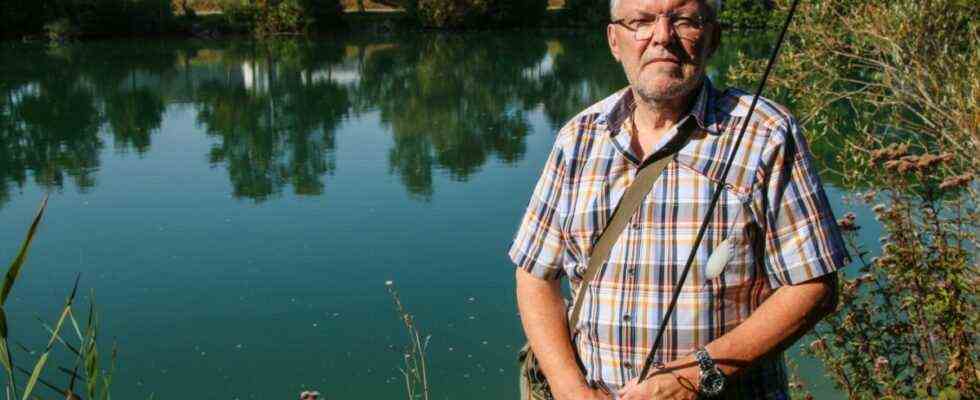Decades ago, the Germering fishing club leased a pond, which is now in the middle of the Gada industrial park in the Bergkirchen municipality in the Dachau district. In the summer of 2020, a laboratory found that Werner Kreißler, the chairman of the association, had elevated levels of perfluorooctanesulfonic acid (PFOS) in his blood. The chemicals come with some certainty from the Fürstenfeldbruck air base and entered the pond via the groundwater. The fishermen are demanding that the authorities provide information about the pollution as well as countermeasures.
The body of water is about 200 meters long and 80 meters wide, one of several earlier gravel pits from the 1970s that were flooded. The anglers use eel, pikeperch, pike, carp and trout there. In the summer of 2019, the Water Management Authority (WWA) determined increased levels of perfluorinated and polyfluorinated chemicals (PFC) for the first time.
This is a group of substances, including PFOS, which do not occur in nature but come from the chemical industry. They are not considered to be naturally degradable; some accumulate in the environment and in organisms. Some are suspected of causing cancer, others have hormone-like effects. The chemicals were distributed into the environment by the fire brigade at the air base using fire-fighting foam.
When the high PFC values were determined in summer 2019, there were no requirements imposed by the authorities. “A fish farm would have been closed, but we don’t sell the fish, we eat them ourselves,” says Kreißler. He was only officially informed of the contamination in March 2020 and requested further water samples from the authorities, which the WWA carried out at the end of 2020. The results confirmed that almost all ponds between the Autobahn and Bergkirchen are attached to the same groundwater line and are contaminated.
The examination of fish showed that freshly introduced trout were hardly contaminated, but that the older specimens of carp, for example, were all the more contaminated, reports Kreißler. According to the reports, the large, perennial animals are quasi hazardous waste. He has been eating fish from the pond for about 30 years. Because fresh groundwater always flows into the pond, all fish are of excellent quality, even carp tasted great, he says. The bad thing about this environmental toxin is that you can neither smell nor taste it and ingest it without knowing it.
The groundwater must be cleaned as quickly as possible, demands Kreißler
In the summer of 2020, Kreißler will have his blood tested in a laboratory in Munich. The doctors found a PFOS content of 11.8 micrograms per liter. The finding specifically points out that the Federal Environment Agency classifies a value of five grams per liter as harmless to health. He sends this result to the State Office for Health and Food Safety and receives the information that a health impairment “cannot be ruled out with sufficient certainty”, but that the risk is “very low”.
Kreißler would like – also in the interest of the neighboring fishing clubs, which are also affected by the PFC contamination – that all parties involved, the owners of the waters, the fishing clubs and representatives of the authorities, sit around one table under the leadership of the district office. You have to discuss how to clean the ponds and clarify legal issues, such as leases.
He points out that other former Bundeswehr locations, such as Manching, which are also contaminated with PFCs, are already being acted upon. Also in the outflow of the former Bruck airport, the groundwater must be cleaned “as quickly as possible” with special carbon filters.

